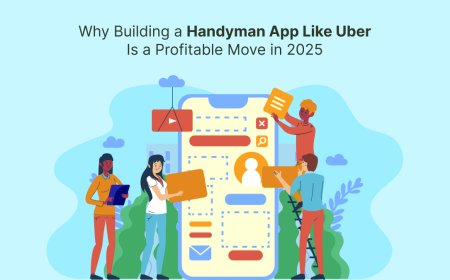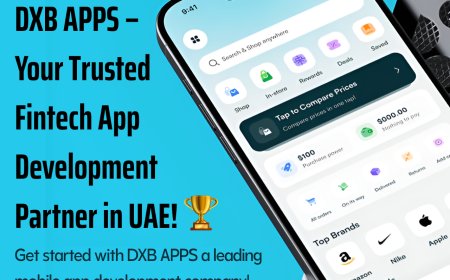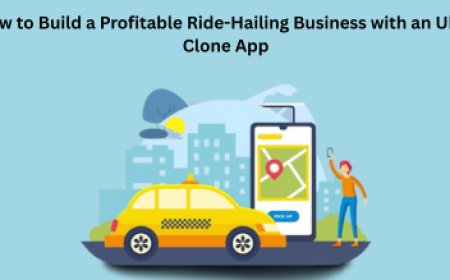The Importance of Attribution Modeling in Paid Campaigns
Discover how attribution modeling enhances ROI in paid marketing campaigns. Learn models, benefits, and how Rank Locally UK supports data-driven success.

In the evolving world of digital advertising, marketers constantly face the challenge of understanding which campaigns, channels, and touchpoints deliver the best return on investment (ROI). That’s where attribution modeling comes into play—a crucial strategy that enables businesses to measure the impact of each customer interaction in the conversion journey. For companies investing heavily in paid campaigns, understanding attribution is not optional—it’s essential.
What Is Attribution Modeling?
Attribution modeling is a framework that determines how credit for conversions is assigned to various touchpoints in a user’s path to purchase. Whether it's a display ad, a social media click, an email link, or a direct website visit, attribution modeling allows marketers to see which interactions had the most influence.
Why It Matters
Without accurate attribution, businesses risk over-investing in underperforming channels or undervaluing high-performing ones. This can lead to wasted ad spend, poor strategic decisions, and ultimately, lost revenue.
Common Types of Attribution Models
Understanding different attribution models is the first step in selecting the right one for your business. Let’s explore the most widely used types:
1. Last Click Attribution
This model gives 100% credit to the last touchpoint before conversion. While simple to implement, it ignores all prior interactions.
2. First Click Attribution
This model assigns all credit to the first interaction. It’s useful for assessing brand awareness strategies but overlooks nurturing efforts.
3. Linear Attribution
This model distributes credit equally across all touchpoints. It’s ideal for campaigns focused on consistent engagement.
4. Time Decay Attribution
More recent interactions receive more credit. This model is great for long sales cycles where recent engagements have greater influence.
5. Position-Based Attribution
Credit is divided between the first and last touchpoints, with the remainder spread across middle interactions. This balances awareness and conversion efforts.
6. Data-Driven Attribution
Powered by machine learning, this model assigns credit based on actual performance data, offering a highly accurate view of what works.
The Role of Attribution in Paid Campaigns
Optimizing Ad Spend
Attribution models allow businesses to allocate budget to the most impactful channels. A digital marketing agency can help brands identify top-performing ads and scale efforts effectively.
Enhancing Campaign Performance
By identifying which keywords, creatives, or platforms drive conversions, marketers can refine messaging and design for better performance.
Aligning Sales and Marketing
Attribution bridges the gap between marketing campaigns and sales outcomes, helping both departments collaborate on shared KPIs.
Improving Customer Experience
A well-informed attribution strategy ensures customers receive relevant messaging at the right time, enhancing engagement and satisfaction.
How Poor Attribution Hurts Your Business
Without proper attribution:
-
You risk overvaluing ineffective campaigns.
-
Valuable top-of-funnel touchpoints may be ignored.
-
Budget decisions may be driven by assumptions instead of data.
-
Your customer acquisition cost (CAC) may rise without delivering ROI.
Engaging with a Top SEO Company or digital marketing company ensures you're guided by data-backed decisions that optimize conversions and reduce waste.
Choosing the Right Attribution Model
There's no one-size-fits-all model. Your choice depends on:
-
Sales cycle length
-
Customer journey complexity
-
Number of marketing channels used
-
Business goals (awareness vs. conversion focus)
Many businesses start with rule-based models (like first-click or linear) and later evolve into data-driven approaches, especially when partnering with a Web Development Company or analytics expert.
Tools That Support Attribution Modeling
-
Google Ads – Offers built-in attribution reports.
-
Google Analytics 4 – Advanced modeling capabilities.
-
Facebook Ads Manager – Attribution settings and conversion paths.
-
HubSpot and Marketo – CRM-integrated modeling for lead nurturing.
-
Third-party tools – Like Adobe Analytics and Ruler Analytics.
A website design agency can help integrate these tools into your tech stack for seamless insights.
Attribution Modeling for Local Businesses
For local businesses, understanding the impact of geographic targeting, mobile ads, and local search is crucial. local SEO services and geo-targeted ads often work hand-in-hand. An effective attribution model helps track:
-
Click-to-call interactions
-
Map views or direction requests
-
In-store visits driven by digital ads
Engaging a best local SEO company ensures these touchpoints are tracked and valued correctly.
Rank Locally UK: Your Partner in Attribution Success
Attribution modeling can be complex—but with the right partner, it becomes a powerful asset. Rank Locally UK helps businesses of all sizes:
-
Identify ideal attribution models
-
Set up and manage campaign tracking
-
Analyze multi-touchpoint conversions
-
Refine ad strategy and budget allocations
Whether you need a SEO Expert, a website designing company or a reputation management company, Rank Locally UK has the talent and tools to fuel your data-driven growth.
How Attribution Ties into SEO and Digital Marketing
Attribution isn't just for paid ads. It affects your entire SEO strategy too. For example:
-
Attribution data can show how organic search plays a role early in the funnel.
-
Knowing when users turn to search engines helps you invest in the right SEO Services.
-
You can refine your blog and landing page strategies to match top-converting paths.
Combining this with insights from a Best Digital Marketing Company ensures a cohesive, high-performing marketing engine.
Attribution and Online Reputation
Imagine spending money on ads while your online reputation suffers. Attribution models may show low conversion rates from high-cost campaigns—yet the culprit could be poor brand trust.
That’s where online reputation management agency services come in. When you improve trust signals—like Google reviews and social proof—your conversions often follow suit. Attribution helps you see this correlation clearly.
Advanced Strategies: Custom Attribution & AI
As marketing becomes more personalized, custom attribution modeling is emerging as a game-changer. Brands now combine AI, first-party data, and CRM insights to build unique models that reflect their true customer journeys.
For instance, an ecommerce website development project may integrate real-time behavioral tracking to inform on-the-fly budget shifts between Facebook, Google, and email ads.
Why Rank Locally UK Leads the Way
From attribution audits to full-funnel optimization, Rank Locally UK supports brands with:
-
Industry-leading tracking tools
-
Integration of CRM and analytics systems
-
Transparent reporting dashboards
-
Conversion rate optimization (CRO) strategies
-
Cross-platform attribution support
Whether you're running Google Ads, Facebook campaigns, or influencer promotions, the team ensures every touchpoint is accounted for.
Partnering with a Best SEO Expert or web design company can ensure all marketing efforts contribute meaningfully to your business goals.
FAQs: The Importance of Attribution Modeling in Paid Campaigns
1. What is attribution modeling in digital marketing?
Attribution modeling tracks and assigns credit to different marketing touchpoints that lead to a conversion.
2. Why is attribution important in paid campaigns?
It helps marketers understand which channels are truly driving conversions and allows better budget allocation.
3. What are common types of attribution models?
First-click, last-click, linear, time decay, position-based, and data-driven are the most common.
4. Which attribution model is best for eCommerce?
Position-based or data-driven models usually work well, as they account for discovery and conversion equally.
5. Can local businesses benefit from attribution modeling?
Absolutely. They can track calls, direction clicks, and local searches to optimize spend.
6. How does attribution improve ROI?
By identifying high-performing channels, it enables smarter investment and improved returns.
7. Is last-click attribution outdated?
While still used, it often ignores the full customer journey and is being replaced by multi-touch models.
8. What tools support attribution modeling?
Google Analytics 4, HubSpot, Adobe Analytics, and Facebook Ads Manager are popular choices.
9. Can attribution modeling be automated?
Yes. Platforms with AI capabilities can automate modeling and updates in real-time.
10. How do I choose the right model for my business?
Evaluate your goals, sales cycle, and available data, or consult a digital marketing agency.
11. How does SEO relate to attribution?
Attribution helps identify when SEO plays a role in customer conversion, even indirectly.
12. Can reputation affect attribution results?
Yes. Poor reviews may lead users to abandon conversion, skewing attribution data.
13. Does Rank Locally UK help with attribution?
Yes. They offer tailored solutions, from tracking setup to full-funnel attribution analytics.
14. What’s the difference between rule-based and data-driven attribution?
Rule-based uses predefined credit rules; data-driven models adjust based on actual conversion patterns.
15. Is attribution only for large businesses?
No. Even small businesses benefit by identifying what drives the best ROI—especially in local SEO for small business contexts.
Get in Touch
Mobile – +91 9212306116
Whatsapp – +91 9212 30 6116
Website- https://ranklocally.uk/
Email – contact@ranklocally.uk










































